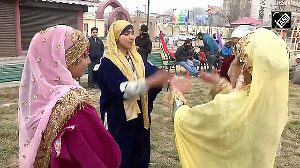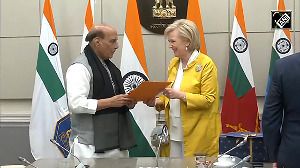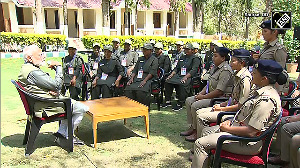History of the Asian Games ahead of the 16th edition which opens in Guangzhou on November 12.
DELHI 1951
Some 500 athletes from 11 countries participated in the first Asian Games, taking part in just six sports. Top three nations with their medals tally:
Gold Silver Bronze Total
Japan 24 20 14 58
India 15 18 19 51
Iran 8 5 2 15
MANILA 1954
Eight additional countries took part, bringing the tally to 19 with 970 athletes. Although cycling was dropped, there were eight sports with the addition of boxing, shooting and wrestling. South Korea competed for the first time.
Gold Silver Bronze Total
Japan 38 36 24 98
Philippines 14 14 17 45
South Korea 8 6 5 19
TOKYO 1958
Tennis, volleyball, table tennis, cycling and hockey increased the tally of sports to 13, with 1,422 athletes competing. For the first time, a torch relay was held.
Gold Silver Bronze Total
Japan 67 42 30 139
Philippines 9 19 21 49
South Korea 8 7 10 25
JAKARTA 1962
For political reasons, the number of participating countries fell to 16 with the expulsion of Israel and Taiwan from the Games. A total of 1,460 athletes competed in 15 sports.
Gold Silver Bronze Total
Japan 73 65 23 152
India 10 13 10 33
Indonesia 9 12 27 48
BANGKOK 1966
Israel and Taiwan returned to the Games, where women's volleyball made its debut. Some 2,500 athletes from 18 countries participated in 14 sports. Thailand entered the top three of the medals table for the first time and India beat Pakistan by a single goal to take the hockey gold.
Gold Silver Bronze Total
Japan 78 53 33 164
South Korea 12 18 21 51
Thailand 12 14 11 37
BANGKOK 1970
The Games returned to Thailand because South Korea, for political and financial reasons, could not host them. A total of 2,400 athletes from 18 countries participated in 13 sports and yachting made its debut.
Gold Silver Bronze Total
Japan 74 47 23 144
South Korea 18 13 23 54
Thailand 9 17 13 39
TEHRAN 1974
The Games were held for the first time in the Middle East, with 3,010 athletes from 25 countries taking part in 16 sports. Fencing and gymnastics were added for the first time.
Gold Silver Bronze Total
Japan 72 51 49 172
China 32 44 26 102
Iran 26 23 14 63
BANGKOK 1978
The Thai capital hosted the games for a third time. Bangkok had come to the rescue when both Singapore and Islamabad pulled out as hosts for financial and political reasons. Archery and bowling were added, which helped to boost the number of competitors to more than 3,800 from 25 countries, competing in 19 sports. For the eighth consecutive Games, Japan topped the medals table.
Gold Silver Bronze Total
Japan 70 58 49 177
China 51 55 45 151
South Korea 18 20 32 70
NEW DELHI 1982
More than 4,500 competitors from 33 countries took part in 21 sports. While fencing and bowling were dropped, equestrian events, rowing, handball and golf were added. China toppled Japan, winning four more gold medals than the Japanese.
Gold Silver Bronze Total
China 61 51 41 153
Japan 57 52 44 153
South Korea 28 28 37 93
SEOUL 1986
Two years ahead of the 1988 Seoul Olympics, the South Korean capital hosted nearly 5,000 athletes from 27 countries competing in 25 sports. For the first time, the Games came under the control of the Olympic Council of Asia. Judo and taekwondo made their debuts. China topped the medals tally for the second time in succession, while the previously all-conquering Japanese dropped to third place.
Gold Silver Bronze Total
China 94 82 46 222
South Korea 93 55 76 224
Japan 58 76 77 211
BEIJING 1990
China hosted the event for the first time with 6,122 athletes from 37 countries participating in 27 sports. Taekwondo, included for the first time in the previous Games, was excluded, along with equestrian events. Boxing, canoeing, kabaddi, wushu and sepak takraw were introduced.
Gold Silver Bronze Total
China 183 107 51 341
South Korea 54 54 73 181
Japan 38 60 76 174
HIROSHIMA 1994
For the first time, the Games were not held in a capital city. Hiroshima in Japan hosted 6,828 athletes from 42 countries participating in 34 sports. Former Soviet republics Kazakhstan, Kyrgyzstan, Tajikistan, Turkmenistan and Uzbekistan competed for the first time and Cambodia returned to the Games after 20 years. Baseball, karate, modern pentathlon and tennis were added.
Gold Silver Bronze Total
China 125 83 58 266
South Korea 64 75 79 218
Japan 63 56 64 183
BANGKOK 1998
The Games returned to Thailand for a fourth time. Rugby, billiards, snooker and squash were added. Some 6,700 athletes from 41 countries participated in 36 sports but the host nation could not break into the top three medal-winners as they had done in the 5th and 6th Games.
Gold Silver Bronze Total
China 129 78 67 274
South Korea 65 46 53 164
Japan 52 61 68 181
PUSAN 2002
With 44 countries involved, the 14th Asian Games featured 38 sports and 420 events. Afghanistan returned to competitive action and East Timor was represented for the first time since its independence. China topped the medals table for the sixth consecutive Games.
Gold Silver Bronze Total
China 150 84 74 308
South Korea 96 80 84 260
Japan 44 73 72 189
DOHA 2006
Qatar hosted 45 teams taking part in 39 sports and 423 events to become the second Middle Eastern nation to host the Games following Iran in 1974. Triathlon and chess made their debuts for the first time and China predictably topped the medal table with its biggest haul since it hosted the Games in 1990.
Gold Silver Bronze Total
China 165 88 63 316
South Korea 58 53 82 193
Japan 50 71 77 198
GUANGZHOU 2010
Following the successful staging of the 2008 Beijing Games and Shanghai's 2010 expo, the southern city of Guangzhou gets its chance to show off China's relentless development and sporting might when it hosts the country's second Asian Games. Some 9,700 athletes from 45 teams will compete in 42 sports. Dance sports, roller sports, dragon boat and cricket have been added as new sports, while new disciplines Go and Chinese xiangqi have been added to the chess programme.











 © 2025
© 2025